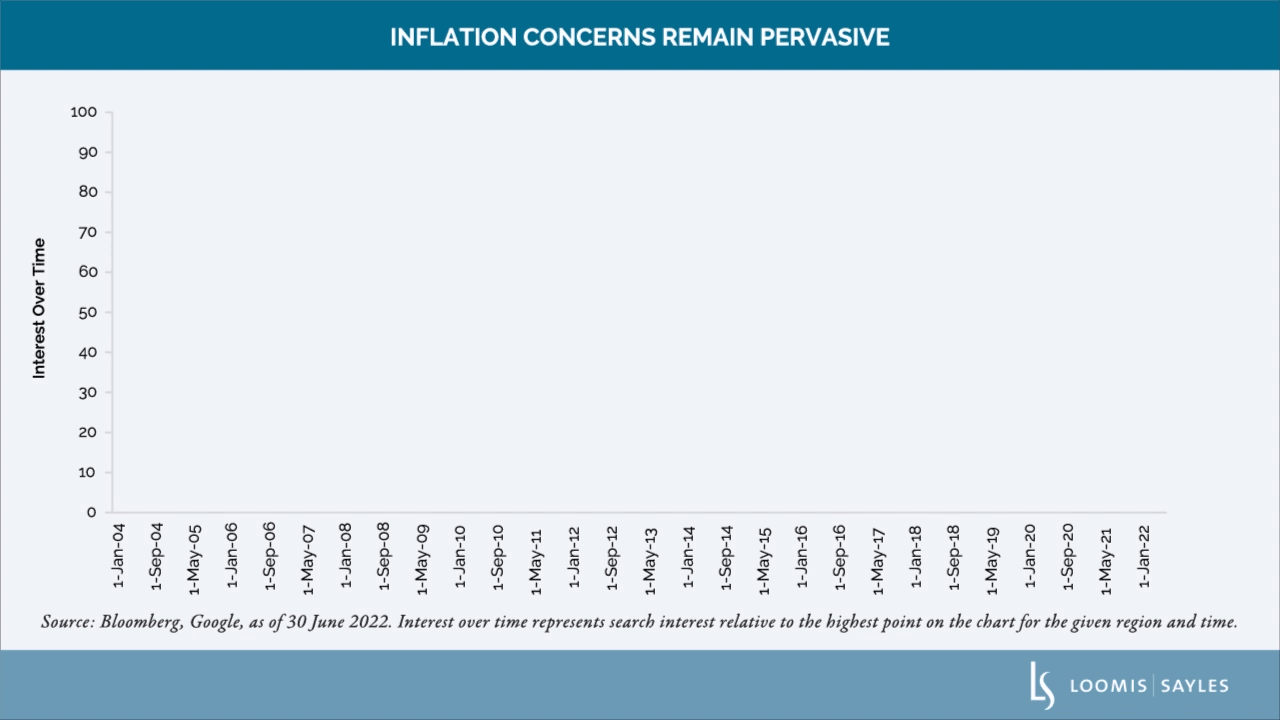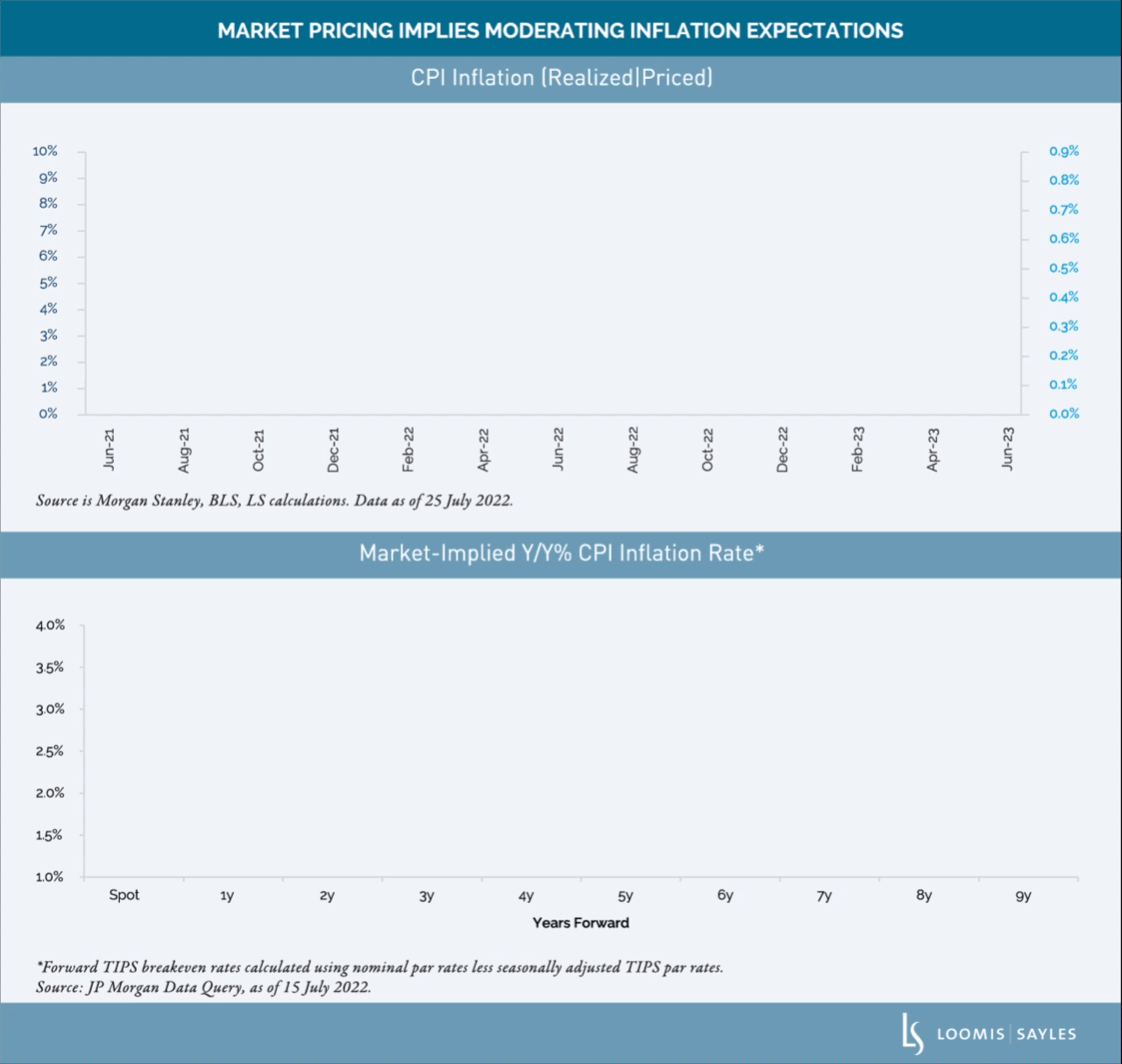It would seem that anxiety regarding inflation remains prevalent: global central banks are aggressively tightening monetary policies, consumer confidence—by some measures—has fallen to a record low with a record share of consumers citing rising prices as the main factor eroding their living standards,[i] and in a recent survey of small businesses, 34% of respondents—the highest in over 40 years—cited inflation as their single most important problem.[ii] Surveys and internet search trends show that inflation continues to dominate the public psyche.

Concerns regarding inflation are almost everywhere you look—unless you happen to be looking at the Treasury bond market.
What TIPS are telling us
In our view, a surprising signal from the US Treasury market is that inflation is nothing to be worried much about. Inflation expectations, derived from the markets for Treasury inflation-protected securities (TIPS) and inflation derivatives, indicate that investors foresee price pressures moderating rapidly.
Market data imply that year-over-year inflation is expected to fall from above 9% at present to around 2% within about 12 months and that inflation will remain benign at near 2% over the medium to longer term. This expectation is serving to keep nominal Treasury bond yields relatively low across the curve.

Identifying potential value
The Treasury bond market seems to be looking two steps ahead, expecting that today’s response to higher inflation (tighter monetary policies, retrenchment by businesses and consumers) can lead to lower growth and lower inflation in the future.
While we do expect some softening in both growth and inflation, we are surprised by the abruptness and fullness of the moderation that has suddenly been priced into the bond market.
We believe that stubbornly high inflation and very responsive central banks remain acute risks for investors, especially those maintaining more pro-cyclical exposures. After cheapening significantly from what we’d perceived as relatively rich valuations, TIPS breakevens now seem to offer value as a hedge against the potentially damaging effects of more persistent inflation.

[i] University of Michigan. http://www.sca.isr.umich.edu
[ii] National Federation of Independent Business. https://www.nfib.com/content/press-release/economy/nfib-inflation-survey-large-majority-of-small-business-owners-report-inflation-pressures-worsening/
MALR029399
Market conditions are extremely fluid and change frequently.






